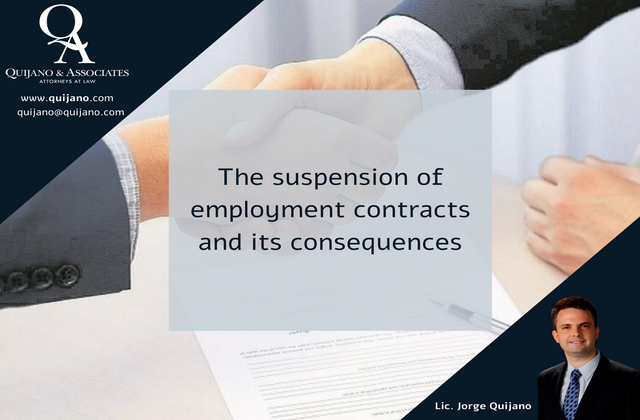The suspension of employment contracts and its consequences

Every employment contract establishes rights and obligations for both the employer and the employee. However, there are certain circumstances of force majeure or based on unforeseeable events that can make it temporarily impossible to continue with the labor relations, thus keeping them suspended until the same is overcome, such as the present world pandemic crisis of Covid-19.
Article 198 of The Panama Labor Code allows the suspension of the employment contracts, meaning, it temporarily removes the obligation to render the service by the employee and to pay wages by the employer for a maximum term of four (4) months.
Subsequently, through Law 157 of August 3, 2020, such term was extended until December 31, 2020, and again stretched through several Executive Decrees, to achieve the gradual reinstatement of employees by economic sectors and based on prioritized return according to the conditions of the employees such as union rights, maternity leave, people with disabilities and those with a longer period of suspended contracts.
As we all have witnessed, unfortunately, the current health situation has not allowed the reactivation of all the suspended contracts and it is expected that through the approval of Bill 542, currently under final discussion, a unified criterion will be achieved to preserve employment and normalize labor relations.
Although it is true that during the period of suspension of the employment contracts the parties are not obliged to comply with the aforementioned obligations, all those economic benefits accrued, and derived from wages in the concept of Seniority Premium, severance, and proportional vacations earned solely prior to the declaration of the state of national emergency will be fully safeguarded.
Considering the above, it is concluded that during the period in which the employee is suspended, since he/she does not receive a salary, vacations, thirteenth-month bonus, or other economic benefits are not computed until he or she is reinstated. Also, the social security fees that have not been paid would result in the non-accumulation of contributions to be credited for retirement. In some cases, this situation could even result in an involuntary extension of the retirement age for those who prior to the pandemic were months away from reaching the minimum legal retirement age.
In conclusion, we hope that the enactment of this new law will be the road to sustain the labor market as a link in our economy.




